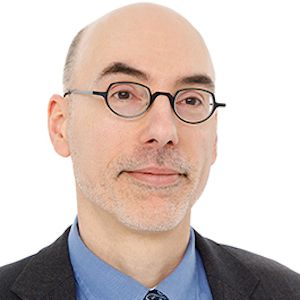Article
An Appropriate Financial Rx for MDs
Comprehensive financial planning is important for any investor seeking a secure financial future. But for physicians, effective planning is especially critical because such high-income professionals have unique and complex financial needs and objectives.
Comprehensive financial planning is important for any investor seeking a secure financial future. But for physicians, effective planning is especially critical because such high-income professionals have unique and complex financial needs and objectives.
Unfortunately, while many physicians are adept at taking care of their patients, they sometimes neglect their financial futures. Doctors generally don’t pay enough attention to their own financial health—leaving them vulnerable to a number of risks.
As a physician, your financial planning should reflect the specialized needs and issues you face. That means addressing important areas such as:
• Retirement planning;
• Estate planning;
• Asset protection; and
• Insurance
Supplementing Traditional Retirement PlansContributing to a profit-sharing or 401(k) plan is sound advice for any investor. However, physicians and other high-income professionals may find that they still have significant amounts to invest even after maxing out on traditional retirement plans.
In such cases, a variable universal life insurance policy may offer an opportunity to supplement your retirement income. A variable life insurance policy offers death-benefit protection in addition to cash value accumulation potential.
Net premiums can be invested in a variety of sub-accounts and may be used to help generate further tax-advantaged accumulation potential for your savings. An additional benefit is that you can make tax-free withdrawals from a variable universal life policy in retirement by borrowing against the policy’s cash value (which will reduce the death benefit), giving you the opportunity for additional income to fund your lifestyle during your golden years.
Keep in mind that life insurance is subject to application and underwriting approval. Some high-income professionals may also wish to consider a 412(i) plan, which is a retirement plan best suited for high-income individuals or for companies with five or fewer employees.
When properly designed, 412(i) plans can enable individuals age 45 or older to make significantly higher tax-deductible contributions than they could through traditional defined contribution plans such as 401(k) plans. 412(i) plans—a type of defined benefit plan—can be a smart strategy for older doctors who haven’t set aside enough for their retirements. The ability to make significantly higher contributions can allow them to catch up and get back on track quickly.
It is important to note that recently, certain types of 412(i) plans have received bad press for their abusive practices. Talk to your financial planner to ensure your 412(i) plan is properly designed.
Tax-Smart Estate Planning
A major issue that physicians face is overfunding their retirement plans and having more money than they need to pay for retirement expenses. While this is a predicament that many would consider enviable, it can present estate planning problems that, if left unsolved, could result in Uncle Sam’s taking a big chunk out of your savings upon your death.
One solution is taking distributions from an overfunded retirement plan sometime after age 59 1/2 and gifting the after-tax proceeds to your children. They can then use the funds to purchase a survivorship life insurance policy establishing you and your spouse as the insured through an irrevocable life insurance trust. This strategy will shift assets over the estate tax fence, enabling you to leave significantly more to your heirs. What’s more, the proceeds from the life insurance—if properly structured—aren’t subject to income, estate, capital gains or generation-skipping taxes. It’s essentially a quadruple-tax-free benefit.
Limiting Legal Exposure
Due to the increase in civil litigation aimed at physicians and other high-income professionals during the past decade, it’s more important than ever that your financial planning strategies help protect your assets.
One effective method is to maximize contributions to qualified retirement plans, such as a 401(k) or profit-sharing plan, which cannot be targeted by creditors. Another approach is to title assets jointly between you and your spouse, which typically can help shield the assets—depending, however, on which state you practice in, as laws vary from state to state.
If you own your own medical practice or small business, you may also wish to consider structuring your business as a limited liability company. This can help insulate you and your assets from liability generated by the business, depending, of course, on the rules of the state in which you practice.
Insuring & Ensuring Your Lifestyle
Physicians and other high-income professionals typically require significant life insurance policies to enable their families to sustain their lifestyles and help meet important financial obligations, such as financing their children’s college educations.
Disability insurance is also a must for high income professionals such as doctors, who possess skills that are not easily replaceable if they are damaged or impaired. Therefore, it is critical to review your current policy to determine if any gaps exist in your coverage.
Talk to Your Planner About:• Strategies for saving the maximum amount possible for retirement.
• Trusts and other vehicles that will allow you to pass more of your estate to your heirs instead of to the government.
• Ways to help preserve your capital and protect your assets.
Mr. Lowry, "The Business Owner's Advisor," has 25 years of experience specializing in advising and serving physician businesses. His fee-based financial planning and investment advisory practice is affiliated with Sagemark Consulting, a division of Lincoln Financial Advisors, a registered investment advisor. He helps doctors accumulate and transfer wealth in tax efficient ways through unique strategies that support their personal goals and family values. He welcomes questions or comments at russell.lowry@lfg.com or 888-921-8455.




